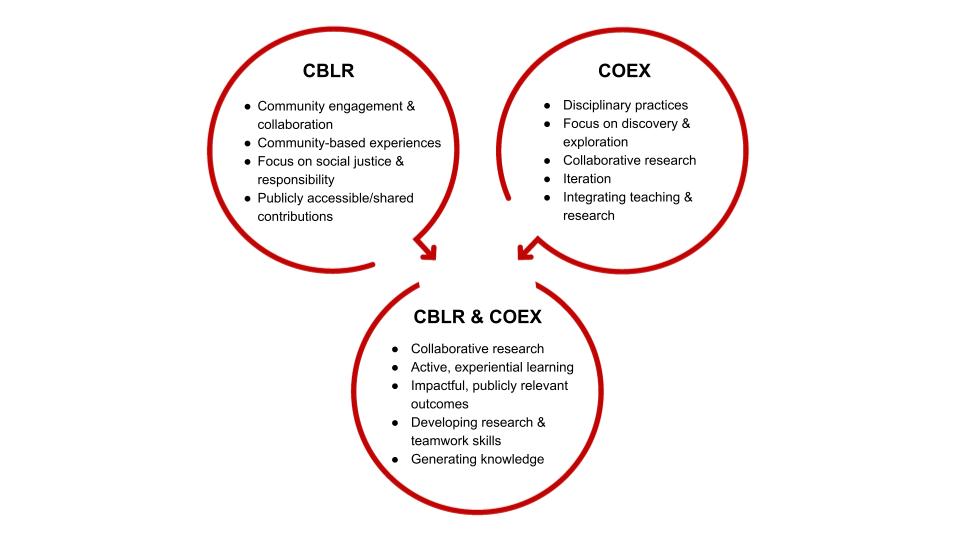Do you want students to develop their research and teamwork skills while addressing specific questions that matter to them, academic disciplines, and broader communities? Courses that engage students in collaborative, community-engaged research projects provide meaningful learning experiences for students, value to nonprofit or government partners, and rewarding opportunities for instructors to connect their teaching, research, and broader interests/impact.
Community-Based Learning and Research (CBLR) is an undergraduate course designation for courses that address social issues in collaboration with community partners; depending on course objectives and community priorities, students’ engagement with real-world issues and organizations might involve research, writing, interpretation and translation, curriculum or program development, or data analysis. The Collaborative Research and Scholarly Experiences (COEX) course designation focuses on addressing a research question in collaborative research projects with potential impact beyond the classroom. Currently five courses carry both CBLR and COEX designations, integrating collaborative research and community engagement in their course design. Though each designation has its distinctive elements, there is overlap – and value – in their mutual focus on collaboration, experiential learning, producing new knowledge, and public relevance and impact.

To add the CBLR and/or COEX designation to a course that carries undergraduate credit and already meets the criteria, you can follow the steps described here. For consultation on preparing a COEX course, please contact Logan Gin at the Sheridan Center for Teaching and Learning. For consultation on developing a CBLR course, please contact Julie Plaut at the Swearer Center. For examples and resources related to CBLR courses, see the Swearer Center’s Engaged Teaching webpage and faculty Spotlights, as well as the Community-Based Learning and Research guidance and CBLR Course Mini-Grants. For a more detailed overview of COEX principles, see the Sheridan Center’s “Integrating Research in STEM & Social Science Courses.”
If you are interested in learning more about how to design your collaborative research course outcomes, the Sheridan Center for Teaching and Learning will be hosting a workshop entitled, “Developing and accessing COEX courses using backward design” from Dr. Katelyn Cooper, Assistant Professor, Arizona State University. The workshop will take place on Wednesday, October 25th from 12:00-1:15 pm in the Sciences Library 720 with lunch provided. For more information and to register, visit the following link.
